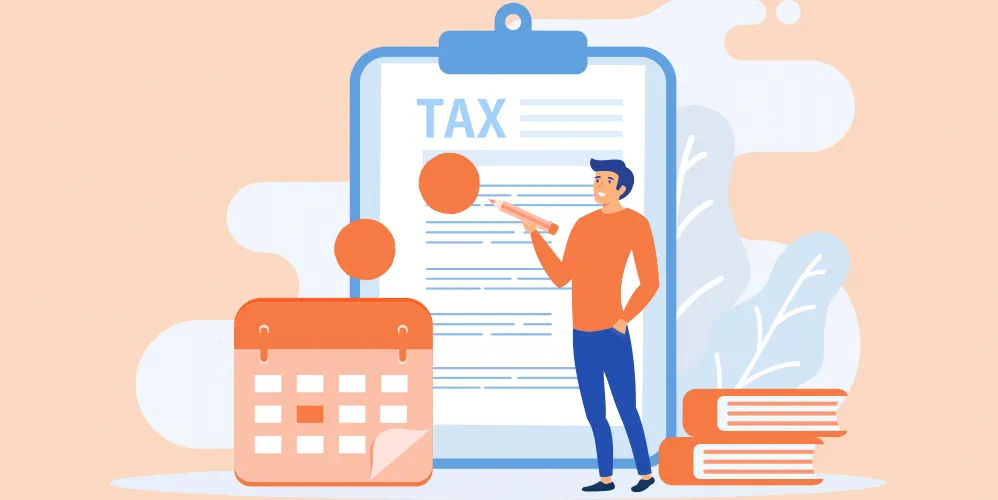
What is Life Insurance ?
19 दिसम्बर 2019

Life can be pretty uncertain. The death of a loved one is always painful, but it can have pretty serious financial consequences if it happens to be an earning member. Life insurance was devised to protect a family in the event of the death of an earning member. So let’s look at what is life insurance in some detail.
Life insurance definition is that it’s a contract between an individual and an insurer. The individual takes out an insurance policy and pays monthly or annual premiums. If the insured person meets with an untimely death, a lump sum is paid to his family, whether it’s parents, spouse or children.
Now that we have understood life insurance meaning, let’s look at the various types of products available to you.
Term Insurance
When you are finding out what is life insurance policy, you should also understand all the different options. Among them is term insurance. This plan is for a certain fixed period of time. For instance, many people choose to have a life insurance policy till the time they are earning, so that their families do not have to suffer loss of income. The lump sum or death benefit paid will ensure that the families will be able to continue the lifestyle they are accustomed to. Some policies cover permanent disability as well. You can take out a term insurance that lasts for as long as you wish – till you are 60 years old or even a hundred! Of course, you will have to pay higher premiums if you take longer policies.
Whole life insurance
Here’s another term you need to learn while learning what is life insurance policy, and that is whole life insurance. This will provide you with lifetime coverage. Of course, you will have to pay premiums for your entire life for this kind of policy.
Endowment policy
An endowment policy is one that combines insurance with investment. The policy is for a fixed period and the policy holder gets a certain amount at the end of it, if he or she survives that period. If the policyholder does not survive, the nominee will get the sum insured.
Unit Linked Insurance Plan
The Unit Linked Insurance Plan or ULIP is a type of endowment policy which combines life insurance with investment. A portion of the premium goes to cover life insurance, while the remainder is invested in either equity or fixed income instruments. The policyholder has the option of selecting the mix of instruments depending on his or her risk appetite and investment goals.
Benefits of life insurance
Now that we have seen what the meaning of life insurance is, let’s look at the benefits.
Protection for family
Obviously, the biggest advantage of life insurance is that it provides financial protection for your family in the event of an untimely death. Ideally, you should take a life cover that is 10 times your annual income to protect your family’s interests.
Tax benefits
There’s another reason to invest in life insurance, and that is tax benefits. Premiums paid are eligible for a reduction in taxable income under Section 80C of the Income Tax Act. However, the amount is limited to 10 percent of the sum assured.
Varied choices
There are many choices available, from plain term insurance to ULIPs that combine insurance and investment.
Savings
Policies like endowment or ULIPS will help you save for long periods.
Popular Articles
Related Articles










-
डिस्क्लेमर
इस लेख/इन्फोग्राफिक/चित्र/वीडियो की सामग्री का उद्देश्य केवल सूचना से है और जरूरी नहीं कि यह बैंक ऑफ बड़ौदा के विचारों को प्रतिबिंबित करे। सामग्री प्रकृति में सामान्य हैं और यह केवल सूचना मात्र है। यह आपकी विशेष परिस्थितियों में विशिष्ट सलाह का विकल्प नहीं होगा । बैंक ऑफ बड़ौदा और/या इसके सहयोगी और इसकी सहायक कंपनियां सटीकता के संबंध में कोई प्रतिनिधित्व नहीं करती हैं; यहां निहित या अन्यथा प्रदान की गई किसी भी जानकारी की पूर्णता या विश्वसनीयता और इसके द्वारा उसी के संबंध में किसी भी दायित्व को अस्वीकार करें। जानकारी अद्यतन, पूर्णता, संशोधन, सत्यापन और संशोधन के अधीन है और यह भौतिक रूप से बदल सकती है। इसकी सूचना किसी भी क्षेत्राधिकार में किसी भी व्यक्ति द्वारा वितरण या उपयोग के लिए अभिप्रेत नहीं है, जहां ऐसा वितरण या उपयोग कानून या विनियमन के विपरीत होगा या बैंक ऑफ बड़ौदा या उसके सहयोगियों को किसी भी लाइसेंसिंग या पंजीकरण आवश्यकताओं के अधीन करेगा । उल्लिखित सामग्री और सूचना के आधार पर किसी भी वित्तीय निर्णय लेने के लिए पाठक द्वारा किए गए किसी भी प्रत्यक्ष/अप्रत्यक्ष नुकसान या देयता के लिए बैंक ऑफ बड़ौदा जिम्मेदार नहीं होगा । कोई भी वित्तीय निर्णय लेने से पहले अपने वित्तीय सलाहकार से सलाह जरूर लें।
What is Forex Card?
Planning to go on a trip abroad? Don’t forget to carry a forex card for a hassle-free trip. So, what is forex card?
A forex card is the safest way of carrying foreign currency for paying for expenses when you are travelling abroad. It is a prepaid card which you can load with a specified amount in a foreign currency. So, when you are travelling overseas, you can swipe this forex card to pay for your expenses, instead of carrying cash around. It works as a debit card. You can also withdraw cash with your forex card from an ATM.
What is forex card and its types?
A forex card is a type of prepaid card in which you can load money in foreign currency. It is globally accepted, and you can either pay for your expenses using your forex card or withdraw cash in foreign currency at an ATM.
Forex cards are largely divided into two types – single currency cards and multicurrency cards.
Single currency forex card: A single currency forex card can be loaded with a particular foreign currency. You can use load this card with a currency when travelling to a particular country.
Multi-currency forex card: As the name suggests, you can preload this card with multiple currencies. Check with your bank about the currencies that you can load onto your multi-currency forex card.
What is the use of forex card?
A forex card is your best friend when you are travelling in a foreign country. There are several benefits of carrying a forex card over travelling with wads of cash or looking for places to convert currencies.
With a forex card, you are likely to get a better conversion rate. Buying a forex card from a bank is a cheaper solution to currency converted.
Most banks offer a range of forex cards that can suit your needs. You need not necessarily have an existing account with the bank to be able to purchase a forex card.
You can avail of many deals, offers and discounts that most banks offer when you purchase a forex card.
A forex card is much safer than carrying cash around. It comes with the chip and pin technology, which adds another layer of safety. Further, if you lose your forex card, you can get your card hot listed immediately to avoid any misuse of the card.
If your card has a remaining balance when you are back home from travel, you can encash the amount at the existing exchange rates. To avoid maintenance charges, you can get your card blocked until your next visit overseas.
How forex cards work?
What is forex card if not a debit/ credit card for your overseas travels. They are globally accepted and are a safer alternative to cash. But how does a forex card work?
It works exactly like a credit or debit card. You apply for a card. Once your application is approved, you receive the card with a pin. Change the pin. Use internet banking to load the card with your desired amount and currency. Now you are good to go.
When abroad, just swipe your forex card at the point of sale machine whenever you pay for something. Just like a debit/ credit card transaction, you will receive SMS and email notification of your transaction and the balance.
Gone are the days of travelling with cash in hand. The world has gone digital and it’s time you did, too. With a forex card in hand, you can get the best deals. Be a global citizen and shop without any limits with a forex card. Avoid queues for exchanging your currencies. Forget about the hassles of travelling with wads of cash in your pocket. Just swipe your forex card and enjoy your trip to the fullest.
What is NPS? It's features and benefits!
If you are looking for a safe investment option, the central government’s National Pension Scheme (NPS) is a good choice. You may be wondering what is NPS scheme?
The NPS is a central government pension scheme that can be availed by employees from the public, private and unorganised sectors. Under this scheme, you csssssan make investments in a pension account at regular intervals through the course of your employment. Not only will you accrue interest on your investments, the account will act as a pension fund for you after your retirement. Upon retirement, you will be allowed to withdraw a percentage of the savings and the rest of the funds will be disbursed to you as equal monthly pension.
While the scheme was earlier available to central government employees only, it has now been extended to the general public (everyone except those in the armed forces.) As an additional benefit, you can also avail tax deductions for your investments in NPS.
Types of NPS account
Primarily, there are two types of NPS accounts: Tier I and Tier II. Tier I is a mandatory account and Tier II is a voluntary one. The biggest difference between the accounts is that investments made in Tier I account are eligible for tax deductions of up to Rs 2 lakh but investment towards Tier II account do not attract any tax benefits. However, you may withdraw funds prematurely from your Tier II account. Premature withdrawals from Tier I account are not allowed.
What are the features of NPS scheme?
Here are some of the prominent features of the NPS scheme:
Minimum investment: The minimum amount that one must contribute towards the NPS is Rs500. While there is no upper limit to the maximum amount that one can contribute, a Tier I account requires a minimum contribution of Rs1,000 in a financial year.
Frequency of contribution: A subscriber must make at least one contribution in a financial year.
Eligibility: Any Indian citizen between the age of 18 years and 65 years can invest in this scheme.
Fund manager: If you are not happy with the performance of your NPS account, you can seek a change in your fund manager.
What are the benefits of NPS scheme?
The NPS account comes with a host of benefits. Here are some NPS advantages:
Tax benefit: With the NPS account, you stand to avail tax deductions up to Rs 2 lakh. You can claim a deduction of up to Rs 1.5 lakh for your contribution as well as for the contribution of your employer into NPS. Section 80CCD(1) of the Income Tax Act covers the self-contribution part under Section 80C. The maximum deduction you can claim under 80CCD(1) is 10% of your salary. For the self-employed taxpayer, one can claim 20% of the gross income. Section 80CCD(2) covers the employer’s NPS contribution. The maximum amount that is eligible for deduction is the lowest of the three—actual NPS contribution by employer, 10% of basic + dearness allowance, gross total income. Apart from this, you can claim any additional self-contribution up to Rs50,000 under section 80CCD(1B) as NPS tax benefit.
High returns: Since a part of your NPS goes to equities, returns on NPS are higher than traditional tax-saving investments such as the PPF.
Low risk: The central government has capped the equity exposure of NPS to the range of 50 to 75 %. This reduces the risk involved in investment into NPS.
Retirement benefits: Upon attaining 60 years of age, you can withdraw up to 60 % of your savings in a go. The rest of the funds are given to you as equal monthly pension. By saving early on, you can prepare for your retirement days
If you want to enjoy your retirement days without having to worry about your expenses, it is advisable to invest in the NPS. By investing early, you can prepare for a hassle-free and peaceful retirement life.

